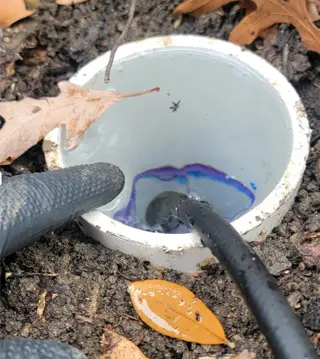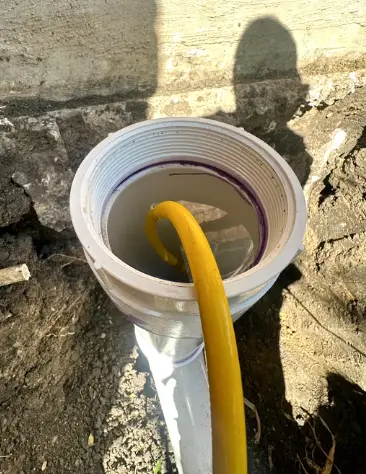Foundation Plumbing Testing

Foundation repair can correct structural issues, but it often shifts the soil and slab—placing your plumbing system at serious risk. Pipes may crack, pull apart, or collapse under stress.
That’s why Texas homeowners, foundation contractors, and real estate professionals rely on GPS Plumbing for certified pre- and post-foundation hydrostatic and pressure testing. We ensure your water and waste lines are professionally tested and fully documented—before and after foundation repair is performed.
We recommend getting a pre and a post hydrostatic pressure test on the water and sewer system whenever you have foundation work done.
We do this before and after for two key reasons: the pre-test provides a baseline of your home’s plumbing system so you know if there were any issues before the foundation was touched. Once the system passes and the foundation repair is complete, we perform a post-test to confirm that nothing was broken, pulled apart, or loosened during the work. Most foundation companies only require a post-test to validate their warranty—but we believe both tests are critical to protect your home and investment.
Led by a licensed Texas Master Plumber with over two decades of hands-on experience, GPS Plumbing is the go-to source for foundation-related plumbing testing across Frisco, Plano, McKinney, Prosper, Allen, Celina, and surrounding North Dallas suburbs. We’ve built our reputation on precision testing, rapid scheduling, and clear reporting—earning over 800 five-star reviews and becoming a trusted resource for homeowners, realtors, and foundation repair crews alike. When it comes to safeguarding your home, we don’t cut corners—and our testing meets all municipal codes and documentation requirements.
What’s Included in Foundation Testing
GPS Plumbing performs both hydrostatic testing and pressure testing to check for damage caused by foundation shifting or lifting:
Water Line Pressure Testing
- Shuts off your main water supply and pressurizes the system
- Monitors for pressure drops to detect leaks in pressurized lines beneath the slab
Sewer Line Hydrostatic Testing (Static Test)
- Seals the sewer line with a test ball
- Fills the system with water and monitors for drops
- Reveals breaks, separations, or compromised drain lines under the foundation
When Should You Schedule Foundation Testing?

We recommend scheduling testing:
- Before foundation work: to document the current plumbing condition
- Immediately after foundation repair: to catch any movement-related damage
- Before replacing flooring: so issues don’t get hidden beneath new tile or wood
- Before buying or selling a home: especially with signs of past foundation movement
Our team works directly with your foundation company or builder to ensure proper timing and coordination.


